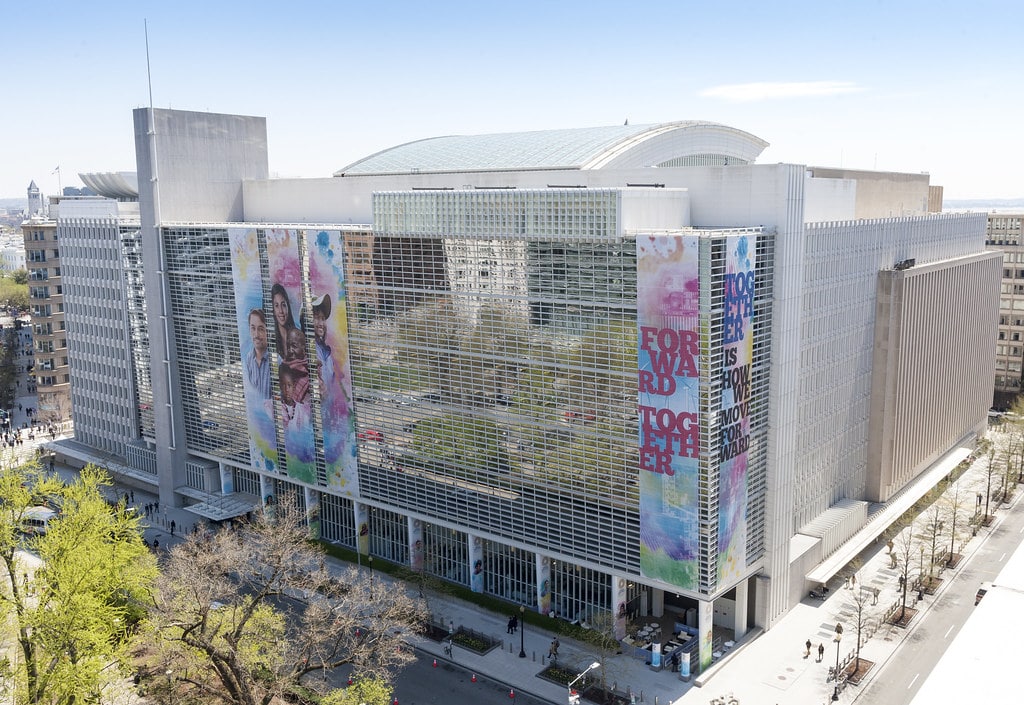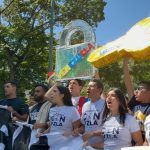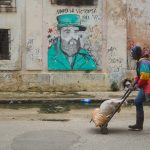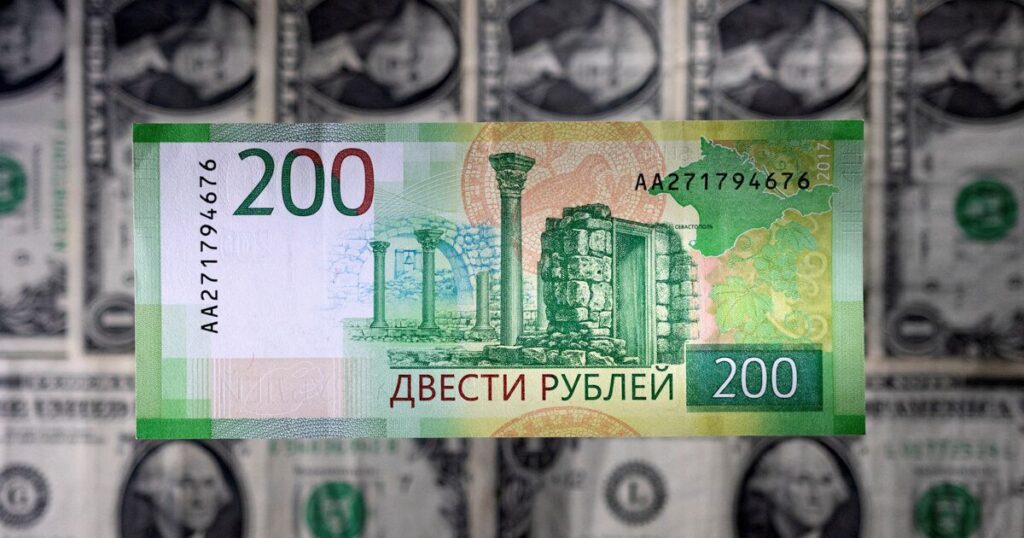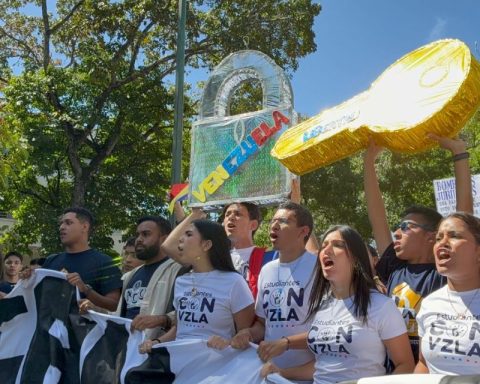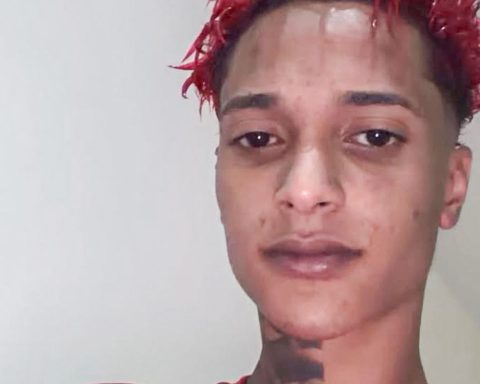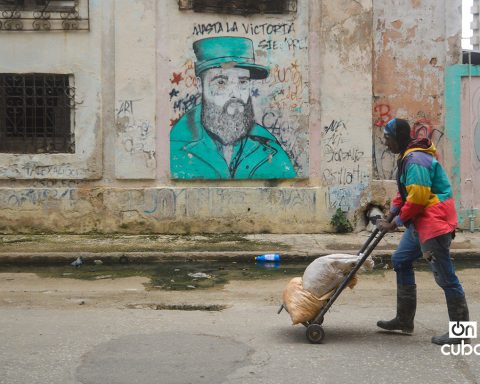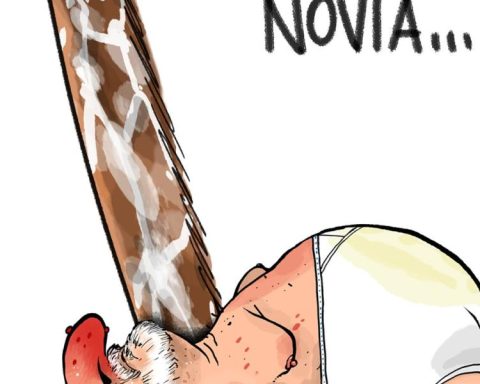The World Bank (WB) failed to specify what are the conditions of transparency in health matters that the dictatorship of Daniel Ortega must comply with with a new loan of 116 million dollars, approved on June 23, according to the document of the “Additional Financing Project for the Response to COVID-19”, reviewed by CONFIDENTIAL.
The management of the Nicaraguan government has been questioned by the Pan American Health Organization (PAHO) due to the opacity of the information on the number of infections, mortality, covid tests and vaccination.
According to a global study of excess mortality attributable to covid-19, published by the World Health Organization (WHO), in Nicaragua there were 55 times more deaths from the coronavirus than those admitted by the Government –12,095 and 16,507 deaths– between 2020 and 2021, while until December 31, 2021, the Ministry of Health counted only 218 deaths from covid-19.
This is the second loan from the agency to Ortega for attention to the pandemic (the first was for 20 million dollars) in the midst of the mainland condemnation the Government of President Ortega for the repression, the police state and for widespread electoral fraud with the imprisonment of seven presidential candidates, and dozens of political and civic leaders, to be re-elected for a fourth consecutive term in the Presidency in November 2021.
For the first World Bank financing, the Ortega regime committed to a series of transparency agreements that it has not complied or partially complied with and without the agreed level of detail.
The official document of this new loan –which is almost six times the first one– does not indicate whether the World Bank established or renewed the transparency agreements made for the previous disbursement, nor whether its compliance was evaluated.
Diplomatic sources revealed that six countries – the United States, Canada, Italy, France, Great Britain and the Netherlands – representing 33% of the World Bank’s shareholders, voted against the loan, which – however – obtained the majority vote with the support from twenty countries.
In January, an analysis of CONFIDENTIAL revealed that Nicaragua closed 2021 with slight progress in access to information and transparency related to the pandemic, despite the commitments with multilateral organizations that urged to reveal the data on its impact. The analysis detailed that, in order to obtain a series of loans to combat the pandemic –which then amounted to 185.4 million dollars with the International Monetary Fund, the World Bank and the Inter-American Development Bank–, the authorities have partially fulfilled their commitments.
UNOPS and PAHO will execute loan
The official loan document details how the United Nations Office for Project Services (UNOPS) and the Pan American Health Organization (PAHO) will be the international organizations that will execute the loan.
“As with the main project ($20 million), the Government of Nicaragua is responsible for the overall implementation of the additional financing ($116 million), while UNOPS acts as the implementation agent. Specifically, UNOPS is responsible for the procurement of goods and services, financial management, and enforcement of environmental and social standards. This includes the supervision of the activities that will be contracted by PAHO”, details the official loan document.
Kinnon Scott, resident representative of the World Bank in Nicaragua, said in response to a query from CONFIDENTIALthat the new loan “contributes to the results of a previous one that has been implemented through UNOPS.”
According to Scott, “Given the results of that first project, which has so far delivered items such as medicines, disposable medical supplies, personal protective equipment and materials for hospital waste management, the Bank continues to work through UNOPS and PAHO to support the Nicaraguan population, especially the most vulnerable.”
He added that “the World Bank’s fiduciary policies and guidelines will govern the use and flow of Bank funds to ensure that they achieve their objective of benefiting the Nicaraguan people.”
The official cited that the loan “aims to strengthen the country’s capacity to respond to this health crisis” and that “it will allow the population to continue benefiting from essential medicines, vaccines, and medical and laboratory supplies and equipment during the current response.” national to the pandemic.
Treasury will only supervise the general execution
The Ministry of Finance and Public Credit (MHCP), whose Minister Iván Acosta, and Vice Minister José Adrián Chavarría, are sanctioned by the international community, will supervise the general execution of the project and maintain communication between the Ministry of Health (Minsa), UNOPS and PAHO, through the Project Management Unit (PMU).
“The flow of funds for the UNOPS agreement will be similar to the flow of funds of the main project, in which the credit funds are advanced to UNOPS and UNOPS documents the executed funds to the MHCP”, details the official document.
Under the agreement, UNOPS will be required to prepare quarterly financial reports and submit them to the PMU. This unit will use the reports to create a semi-annual report to be sent to the World Bank, within 45 days at the end of each period. For its part, the Minsa must coordinate with the Treasury and UNOPS “the preparation and review of the technical specifications of goods and services, as well as the implementation of environmental and social standards.”
The Bank specifies that “all funds disbursed to UN agencies and not used after the project closing date must be reimbursed directly to the World Bank”. Nor have provisions been made for retroactive financing.
What will the USD 116 million be used for?
The financing expands on a first loan for covid-19 care approved in December 2020, and 44% – equivalent to 51.2 million dollars – will be used to buy supplies, medical and laboratory equipment.
In addition, with these, travel expenses and transportation used for vaccination days will be paid, the cold chain for vaccines will be expanded and the National Center for Diagnosis and Reference (CNDR) and the Nicaraguan Institute for Health Research, the only ones, will be expanded. places authorized by the regime to carry out the PCR tests, at a cost of 150 dollars.
Another 42.3 million dollars of the loan will be for the purchase of medicines, maintenance and acquisition of medical equipment used to deal with communicable diseases. Meanwhile, the remaining USD 22.5 million will be used to buy 2.1 million booster vaccines and the necessary supplies to apply them in 2023.
The agreement establishes that PAHO will be in charge exclusively of the purchases of medicines, medical equipment and vaccines. “The agreement will ensure a cost-effective procurement mechanism facilitated by access to WHO/PAHO bulk procurement in the region.”
Conditions and disbursement of the loan
The credit, the document details, was granted for a term of 30 years, has an execution period until June 2025, has a grace period of five years and was financed by the International Development Association (IDA).
During the first year of the loan, the World Bank is expected to disburse 60 million dollars. In 2024, 40 million dollars and in 2025: USD 16.8 million for a total of 136 million, including the first disbursement of 20 million, of which 96% has already been delivered.
This loan is the second largest amount approved to the regime for the care of the covid-19 pandemic. The first was from the International Monetary Fund (IMF), which authorized 185 million dollars in November 2020, followed by the World Bank with 136 million dollars and then the Central American Bank for Economic Integration (CABEI) with 100 million for the purchase of vaccines.
Transparency agreements with the World Bank
At the end of 2021, compliance with the regime’s transparency agreements with the World Bank was partial or unfulfilled.
These agreements included: implementing actions for the dissemination of information and community education on the prevention of the transmission of covid-19; update the epidemiological situation rooms; generate periodic reports on the clinical and epidemiological situation, use of resources, consumption of supplies and needs related to covid-19; maintain communication with other countries and organizations to address joint actions against covid-19, and permanent communication through PAHO/WHO and participation in international spaces.
During 2021, the Minsa did not update the Health Map in which information is revealed on the number of hospitalizations and the 15 most frequent causes of death in the country. These latest data allowed in 2020 to know the excess mortality that occurred during the first six months of the pandemic that, according to medical opinions, are attributable to covid-19 and placed Nicaragua among the countries with the highest excess mortality.
The authorities limited themselves to sharing certain data in interviews with official media, in which they highlighted the achievements they had in 2021 and mentioned some numbers on hospitalizations, but not deaths.
In addition, in an effort to impose opacity, the regime also unleashed, through the Ministry of Health, a wave of repression against the medical union and health organizations, including the cancellation of some of these in the list of 770 eliminated NGOs. between November 2018 and June 2022.
